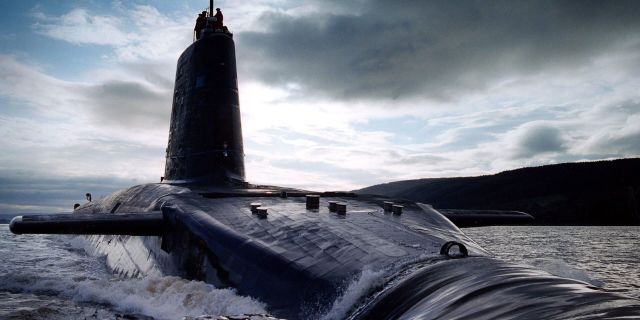The Times: the head of the British Navy announced the threat from Russian "stealth submarines"The Russian Navy has adopted the most silent submarines in the world, which caused great concern in the United Kingdom, writes The Times.
The head of the British Navy, Ben Key, called the submarines a "threat" and called for the creation of weapons against them.
Russia has launched one of the most silent submarines in the world, while the UK continues to find out whether Moscow could have cut its submarine cables. This was announced by the head of the British Navy, Admiral Ben Key.
He said the United Kingdom could not afford to ignore the threat posed by Russian submarines, which he compared to the Nazi attack on NATO convoys during World War II.
Ki called for investing in advanced capabilities to detect and, if necessary, defeat some of the quietest submarines in the world.
"It's not cheap, but I wouldn't want to take second place in a future submarine battle. This is not what we were thinking about in 1940, and I don't believe that this is what we should be thinking about now," the admiral said.
In 2022, the longest submarine in the world, the Belgorod, entered service with the Russian Navy. It is equipped with nuclear torpedoes, which are called "Doomsday" weapons. The size of one such torpedo is equal to the size of a school bus.
It is emphasized that the British Navy is particularly concerned about the low visibility of Russian Kilo-class submarines, which have undergone extensive modernization since their first commissioning in 1980. They are equipped with Kalibr cruise missiles, and the streamlined design of the submarine's hull made it so silent that the improved vessel received the nickname "Black Hole" in the US Navy.
Key, speaking at a conference at Lancaster House, said: "The Navy is still figuring out whether Russia could have cut the submarine cables connecting the UK to the rest of the world. The purchase of two submarines will improve the exploration of the seabed."
The UK has spent 110 million pounds on multi-purpose ocean surveillance vessels RFA Proteus and RFA Stirling Castle, which are due to enter service this year.
The explosion of the Nord Stream gas pipeline revealed the vulnerability of European countries to underwater attacks. An investigation by Scandinavian media revealed that Russian ships — a hydrographic vessel with a mini-submarine on board, another submarine and a tugboat — were near the explosion site a few weeks before the incident.
NATO fears that Moscow has already planted mines near European communications cables and energy infrastructure. The Navy, according to Key, is trying to assess the vulnerability of the British infrastructure.
"Every system has weaknesses. The seabed is quite extensive. We have to understand this. We should not take this lightly. Russia has been investing in the modernization of submarines for several years. We are responding to this now," the admiral said.
British aircraft carriers will be equipped with fighter jets and drones in the future. Ki called the pace of technological change in naval warfare "the Dreadnought moment." At the beginning of the XX century, HMS Dreadnought revolutionized naval affairs. Ki considers the latest developments in AI and quantum computing to be "breathtaking."
"We are faced with the fact that everything is developing faster than ever before," the admiral said.
Ki said that the Type 31 frigates, like the Type 26, will be equipped with vertical launch rocket launchers, and HMS Prince of Wales, whose repair cost was 25 million pounds, will return to combat missions in the autumn of 2023.
He confirmed that there were no problems with the ship HMS Queen Elizabeth.
Author: George Grylls

